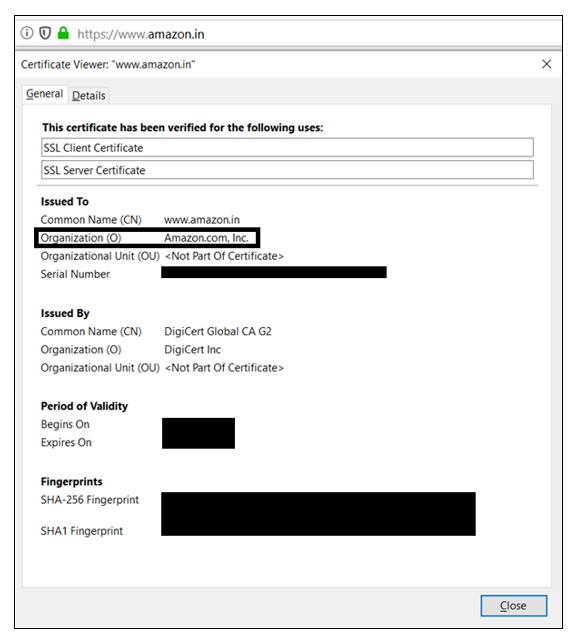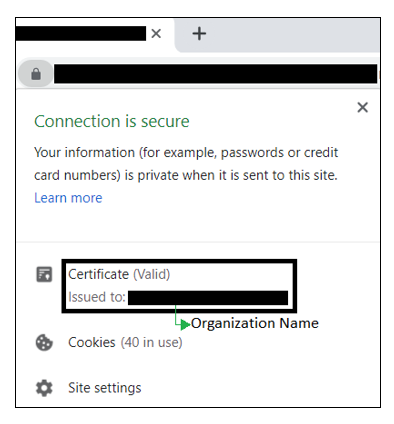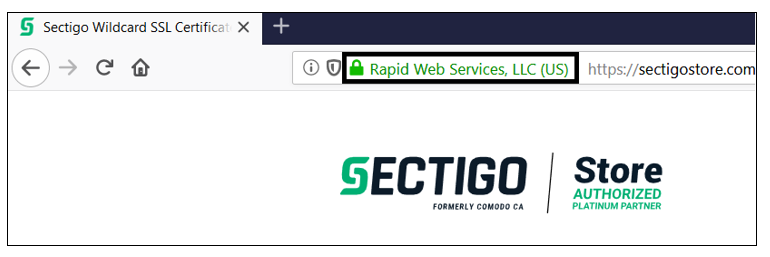The rise of e-commerce and adoption of the digital platform as a mode to conduct business led to the subsequent need to ensure that these online transactions ensued securely. Netscape’s secure sockets layer (SSL) internet protocol, which later evolved into the more advanced and secure transport layer security (TLS) protocol, set the ball rolling. As time progressed, the digital certificate industry came up with different products – for example, domain validation (DV), organization validation (OV), and extended validation (EV) SSL certificates. These solutions targeted different sections of the market. But before we get into comparisons like OV vs EV SSL, it makes sense to look at both validation levels individually.
Now bear in mind, all SSL/TLS certificates provide the same level of encryption. You can purchase a certificate based on its validation level or its functionality. Without further delay, let us dive right into OV vs EV SSL. Spoiler alert? The difference lies in the verification process conducted by a trusted third-party certificate authority (CA).
What Is OV SSL Certificate
An organization validated (OV) certificate is an SSL certificate issued by the certificate authority (CA) after verifying the organization’s identity. An OV certificate mentions the issuer’s identity right on the user’s browser, and therefore, it builds more trust. A CA carries out more validation in the OV certificate than a domain validation (DV) certificate.
OV vs EV SSL: What Is an OV SSL Certificate?
An Organization Validation (OV) certificate is an SSL certificate issued after limited verification by the Certificate Authority (CA). An OV certificate verifies the existence of an organization and the ownership of the domain name. Generally, a CA will take 1-2 days for the issuance of an OV certificate.
Organization validation is one of the most feasible solutions for enterprise environments and intranets if a moderate level of user trust is sufficient. The verification process is more detailed than domain validation, but it is not as thorough as extended validation.
To begin with, for any SSL certificate, the applicant needs to generate the certificate signing request (CSR). The issuing certificate authority (CA), apart from verifying that the applicant has rights to the specific domain name, also conducts additional investigations of the applicant’s business at a basic level. This information is displayed on the certificate for enhanced trust from the site’s end users. An OV SSL certificate can also be used to secure IP addresses.

OV vs EV SSL: What Is an EV SSL Certificate?
If you go for an EV SSL certificate, the CA will perform a rigorous verification of the site’s ownership as well as the legitimacy of the company before issuing your certificate. The vetting process is more intensive than any other validation level and thus commands higher trust with end-users. Website owners will need to provide acceptable documents for the company during the validation process. These verifying documents attest that they have rights to the specific domain and that the business itself is legitimate.
The EV process ensures a thorough investigation is performed on the organization, and this information is displayed on the certificate itself. Historically, it’s also been the only certificate that enables the organization’s name to appear on the browser to indicate your website’s identity.


OV vs EV SSL: The Difference Between the Two
As you probably know by now, whether you choose to go with an OV vs EV certificate (or vice versa), both are excellent choices if you are looking to switch from HTTP to HTTPs. They are both SSL certificates, therefore both provide an encrypted communication channel of the same strength between the client and the server. Moreover, both these certificates offer extremely generous warranties just in case something goes wrong with your certificate.
Get an OV SSL certificate starting at $33.69 per yearThe table below makes a comparison on OV vs EV certificate.
| OV SSL | EV SSL |
|---|---|
| With OV SSL certificates, CAs verify the domain ownership and conduct an adequate investigation to confirm the legitimacy of a company. | In case of EV SSL certificates, apart from CAs verifying the domain ownership, a rigorous investigation is conducted with regards to the legitimacy of a company. |
| OV certificates look similar to DV certificates, but when you inspect an OV certificate, it displays the organization’s name inside. This is not the case with DV certificates. | Previously, to indicate that a website uses EV SSL certificates, a green address bar with the company’s name would display. Depending on which browser you use, the company name appears before the URL (on Firefox) or after the padlock is clicked (on Chrome). |
| Example: Amazon (https://www.amazon.com/) uses an OV SSL certificate. | Example: Sectigo (https://sectigostore.com/) uses an EV SSL certificate. |
| CAs usually require a day or two to issue an OV certificate. It can be issued in a single day if an applicant is in a rush and requests for the process to be expedited. | It typically takes a CA a few business days to issue an EV certificate, but this process can be expedited in some cases. |
| OV SSL certificates establish a moderate level of trust in its users. | The level of trust in EV certificates is higher due to the intensive verification process. |
| OV certificates are more expensive than DV certificates. | EV certificates are generally more expensive than DV and OV certificates. |
OV vs EV SSL: Which One Should You Buy?
When it comes down to making a choice between the two certificates, it really depends on your business needs and your budget constraints. Undoubtedly, an EV SSL certificate would give you the highest possible validation level and establish greater trust in your customer base. However, it’s ultimately up to you to weigh the advantages of each certificate to determine which is best suited to meet your goals and financial needs.
Get an EV SSL certificate starting at $88 per year

 (6 votes, average: 3.67 out of 5)
(6 votes, average: 3.67 out of 5)